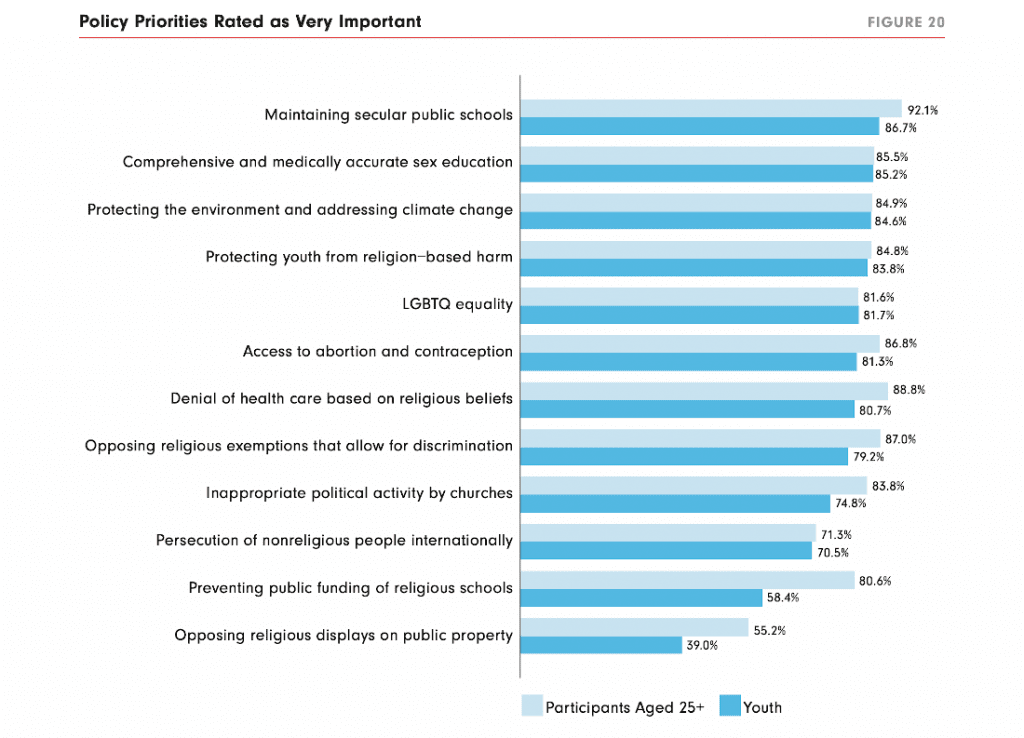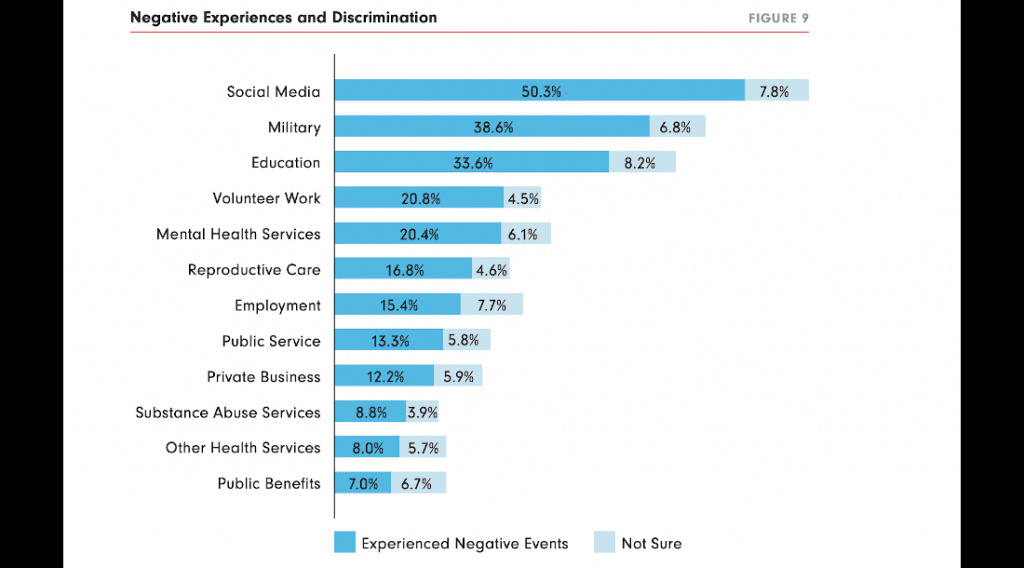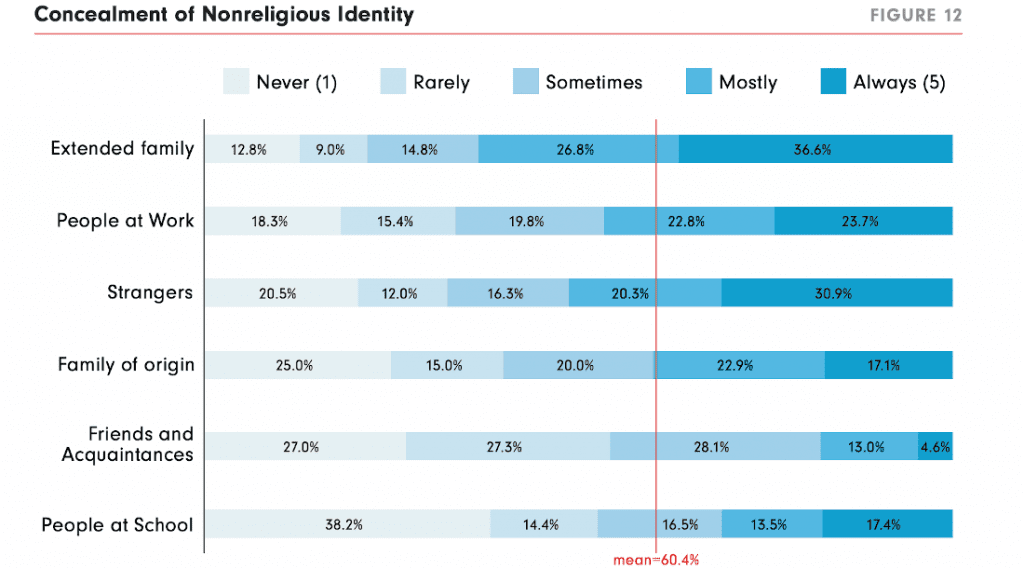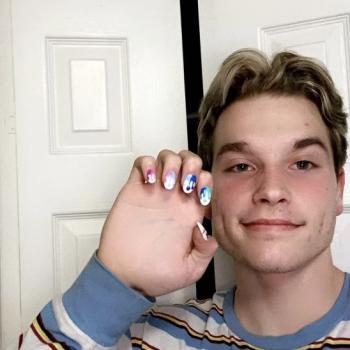Back in May, American Atheists released the results of what was arguably the largest survey ever conducted of atheists.
While there are some obvious statistical limits to an online, self-selected survey, the sheer number of participants still tells us a lot about what a large group of self-described atheists thinks about a number of issues.
Today, American Atheists and the Secular Student Alliance are releasing a new analysis of that survey, this time focusing on younger non-believers. Their report is titled “The Tipping Point Generation: America’s Nonreligious Youth” and some of the results are surprising even to me.
Here are a few takeaways:
- Many participants faced negative experiences or flat-out discrimination for being open about their non-religiosity
- Younger atheists were 2.5 times more likely to hide their secular labels than adults
- The secular advocacy issues that matter to younger atheists are different from those that matter to adults
Half (50.3%) of youth participants had encountered negative experiences and discrimination while using social media or commenting online. This is especially concerning because participating in online secular communities and discussing their beliefs online may be the only available method for many young people to express or engage with their nonreligious beliefs. This is especially true for young people living in very religious areas or those whose parents are not supportive of their beliefs.
…
In the U.S. Secular Survey, nearly one third (33.6%) of youth participants who attend school or who have children attending school reported having had negative experiences in an educational setting within the past three years because of their nonreligious identity.
… This affected nearly every area of life, but it was most pronounced with their family of origin and extended family. The only area where youth were less likely to conceal their identities was among people at school, which may indicate that school communities are an important source of support for nonreligious young people.
… Significant research demonstrates that concealment can lead people to feel a lack of authenticity, to have difficulty establishing close ties with others, to experience more social isolation, and to have lower feelings of belonging and psychological wellbeing…

While youth and older participants of the U.S. Secular Survey held similar views of the importance of many secular policy issues, such as climate change, abortion, and LGBTQ rights, youth were significantly less likely to say that preventing inappropriate political activity by churches, preventing public funding of religious schools, and opposing religious displays on public property were very important than were adults age 25+.
The report also includes some policy recommendations for states, educational institutions, and supporters. Some of them are fairly obvious: Prohibit discrimination, bullying, and harassment that centers around religion. Lawmakers and educators should oppose religious coercion. Create groups that support young atheists because communities are important.
A press release for the new analysis summarizes the results this way:
“With nearly half of young people now identifying as nonreligious, we are at a tipping point in America’s religious history. Over the last decade religion has faded faster in the U.S. than in any other nation, and that’s in large part because of America’s youth,” said Alison Gill, Vice President for Legal and Policy at American Atheists. “Despite the sharp decline of religion in America, nonreligious young people nonetheless continue to face significant hardships in areas such as education, the workplace, and healthcare — especially in very religious areas. These regional differences coupled with the high level of discrimination and stigma we are seeing is worrisome.”
…
“Unless you consider the nonreligious aspect of Generation Z’s identity, you cannot fully understand who they are,” said Kevin Bolling, Executive Director of the Secular Student Alliance. “At the same time, you won’t understand nonreligious Americans unless you include this younger generation.”
Read the entire thing here. It’s a very useful document that ought to guide how people in power help a generation that is increasingly non-religious.






It’s Moving Day for the Friendly ..."
It’s Moving Day for the Friendly ..."
It’s Moving Day for the Friendly ..."
It’s Moving Day for the Friendly ..."